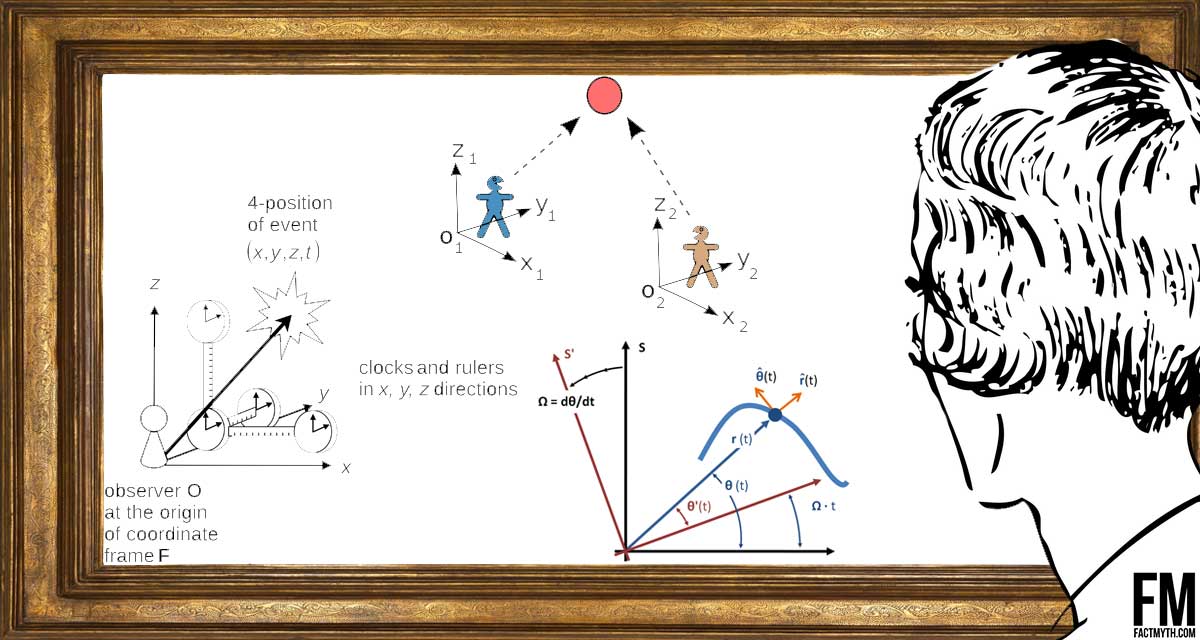Reference Frames Examples (Physics)

Reference frames and relativity in physics explained using math-free examples. We cover: frames of reference, inertial frames, accelerated frames, and relativity.
Galileo Galilei (Galileo) was an an Italian astronomer, physicist, engineer, philosopher, and mathematician known for improvements to the telescope and discovering the earth revolved around the sun (heliocentrism).

Reference frames and relativity in physics explained using math-free examples. We cover: frames of reference, inertial frames, accelerated frames, and relativity.